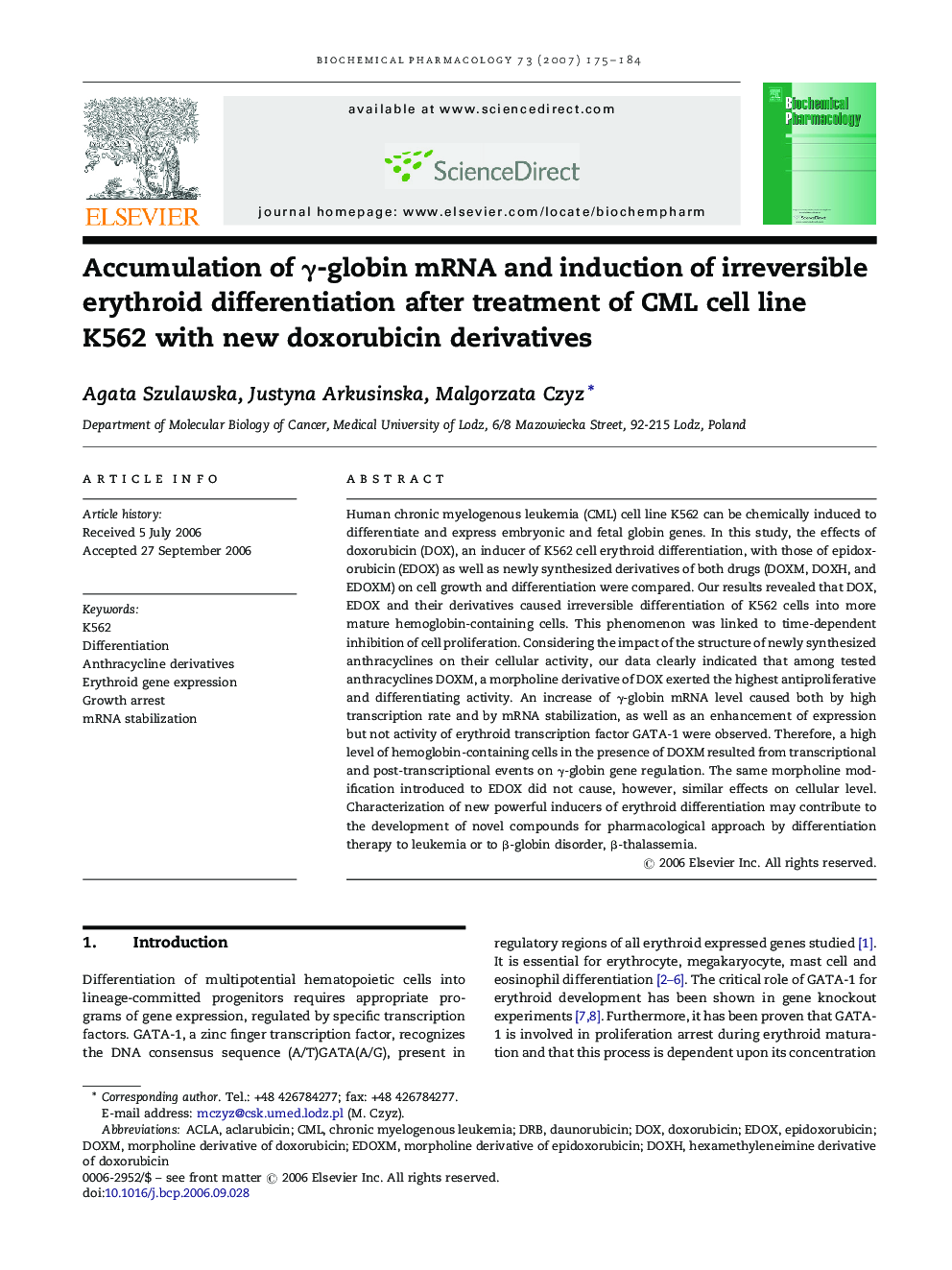| Article ID | Journal | Published Year | Pages | File Type |
|---|---|---|---|---|
| 5824298 | Biochemical Pharmacology | 2007 | 10 Pages |
Abstract
Human chronic myelogenous leukemia (CML) cell line K562 can be chemically induced to differentiate and express embryonic and fetal globin genes. In this study, the effects of doxorubicin (DOX), an inducer of K562 cell erythroid differentiation, with those of epidoxorubicin (EDOX) as well as newly synthesized derivatives of both drugs (DOXM, DOXH, and EDOXM) on cell growth and differentiation were compared. Our results revealed that DOX, EDOX and their derivatives caused irreversible differentiation of K562 cells into more mature hemoglobin-containing cells. This phenomenon was linked to time-dependent inhibition of cell proliferation. Considering the impact of the structure of newly synthesized anthracyclines on their cellular activity, our data clearly indicated that among tested anthracyclines DOXM, a morpholine derivative of DOX exerted the highest antiproliferative and differentiating activity. An increase of γ-globin mRNA level caused both by high transcription rate and by mRNA stabilization, as well as an enhancement of expression but not activity of erythroid transcription factor GATA-1 were observed. Therefore, a high level of hemoglobin-containing cells in the presence of DOXM resulted from transcriptional and post-transcriptional events on γ-globin gene regulation. The same morpholine modification introduced to EDOX did not cause, however, similar effects on cellular level. Characterization of new powerful inducers of erythroid differentiation may contribute to the development of novel compounds for pharmacological approach by differentiation therapy to leukemia or to β-globin disorder, β-thalassemia.
Keywords
Related Topics
Health Sciences
Pharmacology, Toxicology and Pharmaceutical Science
Pharmacology
Authors
Agata Szulawska, Justyna Arkusinska, Malgorzata Czyz,
